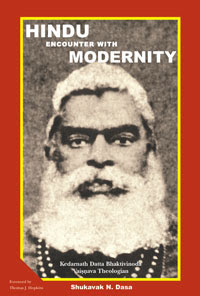Jugupsā and Madhura-rati
I was thinking about a section of the Bhakti-rasayānam by Madhusudan Saraswati that made a big impression on me when I first read it so many years ago. Madhusudan says that the goal of spiritual practice to transform the mind by reshaping it into the image of God. How does one shape the mind? In this, Madhusudan’s insight into the efficaciousness of bhakti is remarkably modern: he says that the mind is like a piece of sealing wax that softens on being placed near a source of heat; when overwhelmed by an emotion, it takes on the shape of whatever happens to come into contact with it. Then, subsequently, when the emotion subsides, the mind is left marked with formative impressions, just as the wax is after cooling off. These impressions are called vāsanās or saṁskāras in Madhusudana's terminology. We know that childhood experiences leave deep imprints on the subconscious that are indeed hard if not impossible to efface. These are the discoveries of depth psychology, which has i...



